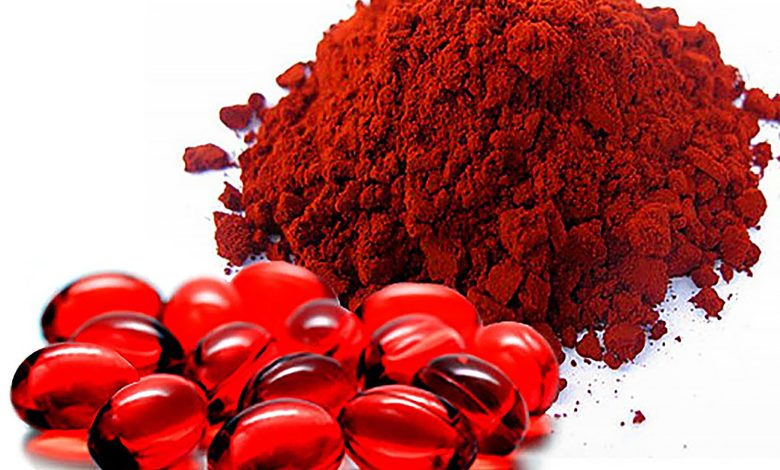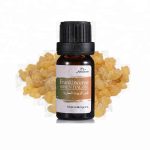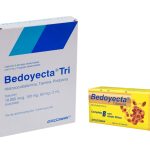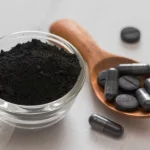Astaxanthin: Uses, Benefits, Dosage, Side Effects, Dangers

Astaxanthin is a naturally occurring red-colored pigment found in several types of marine creatures such as algae, salmon, shrimp, lobster, and krill. It is a type of carotenoid, a class of pigments that give plants and animals their vibrant colors. Astaxanthin is known for its antioxidant properties and potential health benefits.
The history of astaxanthin dates back to the early 19th century when it was first isolated from lobster shells by a British scientist named Sir Humphrey Davy. However, it was not until the 20th century that researchers started to investigate the health benefits of astaxanthin.
In the 1940s, Japanese researchers discovered that astaxanthin was responsible for the pink color of salmon flesh. They also found that astaxanthin was a powerful antioxidant and had the ability to protect cells from oxidative damage.
In the 1980s, Japanese scientists started to investigate the potential health benefits of astaxanthin in humans. They found that astaxanthin had anti-inflammatory properties and could improve the body’s immune system. This led to the development of astaxanthin supplements, which are now widely available as dietary supplements.
Today, astaxanthin is a popular ingredient in dietary supplements, skincare products, and even in some pet foods. It continues to be the subject of ongoing research to determine its full potential in promoting health and preventing disease.
Health Benefits of Astaxanthin
Astaxanthin has gained popularity as a dietary supplement due to its potential health benefits. Here are some of the health benefits associated with astaxanthin:
- Powerful antioxidant: Astaxanthin is a potent antioxidant that helps to protect the body against oxidative stress caused by free radicals. It is known to be up to 6000 times more potent than vitamin C and 800 times more potent than CoQ10. By neutralizing free radicals, astaxanthin helps to reduce inflammation and prevent damage to cells, tissues, and organs.
- Anti-inflammatory properties: Astaxanthin has been shown to have anti-inflammatory properties, which can help to reduce pain, swelling, and stiffness associated with conditions such as rheumatoid arthritis, osteoarthritis, and tendonitis.
- Cardiovascular health: Astaxanthin has been shown to help maintain healthy cholesterol levels, improve blood flow, and reduce the risk of heart disease. It does this by reducing inflammation, improving blood vessel function, and preventing the oxidation of LDL cholesterol.
- Skin health: Astaxanthin has been shown to protect the skin against UV damage caused by exposure to the sun. It does this by neutralizing free radicals and reducing inflammation. Astaxanthin has also been shown to improve skin elasticity, reduce the appearance of fine lines and wrinkles, and improve skin hydration.
- Eye health: Astaxanthin has been shown to improve eye health by reducing eye fatigue and strain, improving visual acuity, and protecting against age-related macular degeneration.
- Immune system support: Astaxanthin has been shown to help support the immune system by increasing the production of antibodies and enhancing the activity of white blood cells.
- Exercise performance: Astaxanthin has been shown to improve exercise performance by reducing muscle damage and inflammation, improving endurance, and increasing strength.
Astaxanthin is a powerful antioxidant with anti-inflammatory properties that has been shown to have numerous health benefits. It can be obtained from dietary sources such as salmon, trout, shrimp, and lobster, or taken as a dietary supplement. However, it is important to consult with a healthcare professional before taking any supplements, as they may interact with certain medications or have adverse effects on some individuals.
How To Take Astaxanthin
Astaxanthin is available in various forms, including capsules, soft gels, tablets, and powders. The recommended dosage for astaxanthin varies depending on the intended use, age, and health status of the individual. It is always advisable to consult a healthcare provider before starting any supplement regimen.
For general health and wellness, a daily dose of 4-12 mg of astaxanthin is recommended. This dose may be taken once a day or split into two doses taken at separate times. It is important to note that the effects of astaxanthin may take several weeks or even months to become noticeable.
For athletic performance and recovery, a higher dose of 12-24 mg per day may be recommended. This dose may also be split into two doses taken at separate times, with one dose taken before exercise and the other after.
For skin health, a daily dose of 6-12 mg of astaxanthin may be recommended. This dose may be split into two doses taken at separate times.
For eye health, a daily dose of 6-12 mg of astaxanthin may be recommended. This dose may also be split into two doses taken at separate times.
It is important to follow the recommended dosages and not exceed the daily recommended limit, as excessive intake of astaxanthin may lead to adverse effects. It is also recommended to take astaxanthin with food for better absorption.
Astaxanthin Dangers and Side Effects
Astaxanthin is generally recognized as safe (GRAS) by the US Food and Drug Administration (FDA) when consumed at levels commonly found in food.
However, like any supplement, Astaxanthin can have potential side effects and may interact with certain medications or medical conditions. It is important to consult with a healthcare professional before taking any supplements, including Astaxanthin, particularly if you have a medical condition or are taking medication.
Here are some potential risks and considerations associated with Astaxanthin use:
1. Gastrointestinal (GI) issues: Some people may experience GI issues such as nausea, diarrhea, or stomach cramps when taking Astaxanthin. These symptoms are generally mild and transient, but if they persist, it is important to discontinue use and consult a healthcare professional.
2. Allergic reactions: Although rare, some people may be allergic to Astaxanthin, and may experience symptoms such as hives, rash, or difficulty breathing. If you experience any of these symptoms, stop taking Astaxanthin immediately and seek medical attention.
3. Interactions with medications: Astaxanthin may interact with certain medications, particularly blood thinners such as warfarin or antiplatelet drugs such as aspirin. Astaxanthin may also lower blood pressure, so it is important to monitor blood pressure levels closely if taking medication for hypertension.
4. Pregnancy and breast-feeding: There is limited information on the safety of Astaxanthin use during pregnancy and breastfeeding. While there are no known harmful effects, it is recommended to avoid supplementation during pregnancy and breastfeeding unless advised by a healthcare professional.
5. Quality and purity: As with any supplement, it is important to choose a high-quality Astaxanthin product from a reputable manufacturer to ensure purity, potency, and safety.
Astaxanthin is generally considered safe for most people when taken as directed. However, it is important to consult with a healthcare professional before taking any supplements, including Astaxanthin, particularly if you have a medical condition or are taking medication.
Astaxanthin Overdose Dangers
There is limited information available on the effects of an astaxanthin overdose in humans. However, animal studies have shown that high doses of astaxanthin can cause liver damage and reproductive toxicity.
In one study, rats were given high doses of astaxanthin (up to 5000 mg/kg of body weight) for 28 days. The study found that the rats showed signs of liver damage, such as increased liver weight and changes in liver enzyme levels. In addition, the study found that the high doses of astaxanthin caused reproductive toxicity in male rats, including reduced sperm count and motility.
While these findings are concerning, it’s important to note that the doses used in these studies are much higher than the recommended doses for humans. The recommended daily dose of astaxanthin varies depending on the specific health condition being treated, but doses typically range from 4 mg to 12 mg per day.
If you are taking astaxanthin supplements, it’s important to follow the recommended dosage instructions provided by the manufacturer or your healthcare provider. Taking more than the recommended dose can increase the risk of adverse effects and may not provide additional health benefits. As with any supplement, it’s important to talk to your healthcare provider before starting to take astaxanthin, especially if you are pregnant, breastfeeding, or taking medication.





